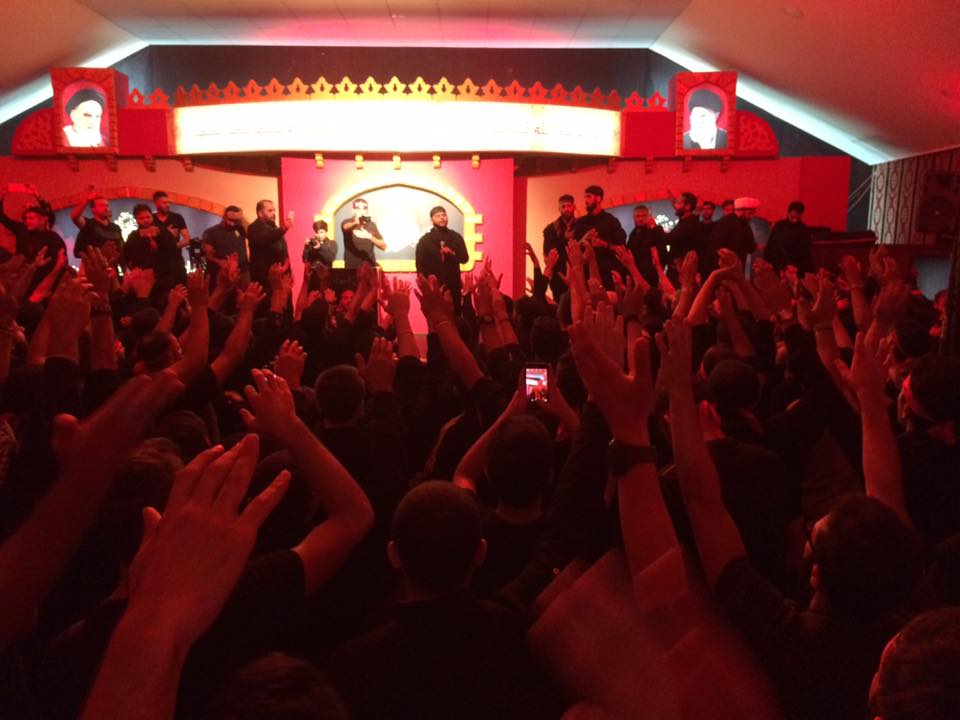Alwaght- Hundreds of men gathered in a Housseinya in the southern suburbs of Beirut raise their hands in the air, waiting for the reciter to queue the start of what is known as Latmiya, an Islamic lamentation form over the martyrdom of Imam Hussein. This scene is not unusual during the first ten days of Muharram up until Ashura, the day the Battle of Karbala took place 1400 years ago.
On the day of Ashura, many donate blood. These Shiite Muslims believe commemorating Imam Hussein can be done by donating one’s blood to others. Instead of blood shedding, they choose to put it into good use.
In other places, however, the scene is not so organized. In fact, it can get quite gory.
Some Shiites who have been affected by falsely spread traditions practice self-flagellation and Tatbir, the act of hitting one’s head with a blade until blood is spilt, among other invented and controversial practices.
In Lebanon, supporters of Hezbollah and many others do not tread this ground. Followers of Atatollahs Sayyid Ali Khamenei and Sayyid Mohammad Hussein Fadlallah strictly avoid shedding their own blood in the name of Imam Hussein.
In fact, many condemn such acts and urge others to refrain from engaging in them as they misrepresent the ideology of Ashura. Spilling blood in vain, hurting oneself and others—as sometimes children are forced into it—are not values held up by Imam Hussein.
In the midst of a hunger to indulge in meaningless rituals instead of exemplifying Imam Hussein’s humanity, refined manners, and humility, misled Shiites are contributing to the misrepresentation of the Islamic identity. When the world is presented with such scenes as the embodiment of Ashura principles, Imam Hussein’s fight for dignity and justice is marred by these images.
This is what catches their attention, reeling them away from the true cause. If one searches for Muharram or Ashura using a search engine, graphic images of Shiites cutting their heads or those of children—even infants— appear on the screen, in addition to self-flagellation. The images are numerous and will most likely tarnish the image of the Shiite community. For many, this barbarism may end up defining the group.
Indeed, they have failed to grasp the lessons from the Battle of Karbala, distracted by the ignorance that breeds such trivial acts.
Amid such irrelevant rituals, prominent Shiite clerics continue to raise awareness of the importance of maintaining the sanctity of Ashura, mainly by expressing grief in civilized ways. Shedding tears, Latem, blood donations, attending Majlis, reciting eulogies, distributing food and such practices are examples of acceptable ways to commemorate Ashura without resorting to banned and undignified practices.
On Monday, during a speech marking the 8th of Muharram, Hezbollah Secretary-General Sayyid Hassan Nasrallah lambasted the adoption of misinterpreted Ashura rituals by certain groups, saying that Imam Hussein embraced martyrdom in order to save the Muslims’ dignity and pride.
Sayyed Nasrallah further questioned those who shed their blood during Ashura ceremonies about their abstaining from contributing to the battles against the enemies of Islam.
Lebanon is not the only country where Shiites have misinterpreted the meaning of Ashura and have fallen into a trap of customs that do not pertain to the principles of Shiite Islam. These groups have been fed with baseless lies as attempts to distort the true essence of the Battle of Karbala persist. At the same time, there are sides that are working to maintain the authenticity of the Ashura commemorations.



























